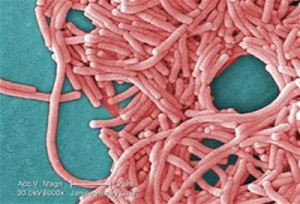An Ohio County, West Virginia, man has a confirmed case of Legionnaire’s disease, according to the Wheeling-Ohio County Health Department. Officials have not reported the suspected source of the Legionella bacteria that caused the illness.

Legionnaire’s disease can be fatal, and serious complications of Legionnaire’s include respiratory failure, heart inflammation, kidney failure and sepsis (infection of the blood), which can cause multiple-organ failure and is the most common precursor to death.
Because Legionnaire’s disease initial symptoms are the same as the flu, doctors can misdiagnose victims, leading to further harm. Given this issue with diagnosis and the danger of not immediately and correctly treating the illness, the Wheeling-Ohio County Health Department issued this advisory to health providers in the area:
The Wheeling-Ohio County Health Department is notifying the medical community in Ohio County concerning testing for Legionnaire’s Disease.The health department has been investigating a case of Legionnaire’s Disease in Ohio County.The health department is advising the medical community to investigate, test and report to the health department all suspected cases of Legionella pneumonia.
Guidance on diagnosis and testing includes the following:
- Clinical features of Legionnaire’s disease generally include radiographic pneumonia with cough, fever, and chest pain; hospitalization is common. More information can be found at: http://www.cdc.gov/legionella/top10.htm
- Urinary antigen assay AND culture of respiratory secretions on selective media are the preferred diagnostic tests for Legionnaire’s disease.
- Respiratory secretions (sputum or bronchoalveolar lavage) should be collected before starting antimicrobial therapy from all suspected cases of Legionnaire’s disease.
- Suspected cases of Legionnaire’s disease in West Virginia are required to be reported to the local health department where the patient lives within one (1) week. Possible outbreak-related cases should be reported immediately.
Our law firm represents victims of Legionnaire’s disease nationwide. Contact them for a free consultation.